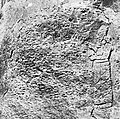Ašarēd-apil-Ekur, inscribed ma-šá-rid-A-É.KUR or mSAG.KAL-DUMU.UŠ-É.KUR and variants (meaning "the heir of the Ekur is foremost"), was the son and successor...
4 KB (442 words) - 18:38, 20 September 2024
went home” which suggests that the succession was not smooth. Ninurta-apil-Ekur is said to have "guarded all the people of Assyria, with wings like an...
8 KB (975 words) - 10:03, 15 November 2024
Kinglist. He was the son of Tiglath-Pileser I, succeeded his brother Asharid-apal-Ekur who had briefly preceded him, and he ruled for 18 years He was the...
11 KB (1,327 words) - 07:04, 9 October 2024
Tiglath-Pileser III (Neo-Assyrian Akkadian: 𒆪𒋾𒀀𒂍𒈗𒊏, romanized: Tukultī-apil-Ešarra, meaning "my trust belongs to the son of Ešarra"; Biblical Hebrew:...
61 KB (7,507 words) - 13:23, 30 October 2024
1178 to 1133 BC (variant: c. 1168 to 1133 BC), and the son of Ninurta-apal-Ekur, where one of the three variant copies of the Assyrian King List shows a...
6 KB (648 words) - 09:58, 15 November 2024
Mari Apil-kin (𒀀𒉈𒄀 a-pil-gin6), was a ruler of the city of Mari, northern Mesopotamia, after the fall of the Akkadian Empire c. 2126-2091 BCE. He was...
9 KB (915 words) - 16:42, 27 May 2023
pressure on his realm. He died in 1076 BC and was succeeded by his son Asharid-apal-Ekur. The later kings Ashur-bel-kala and Shamshi-Adad IV were also his...
13 KB (1,513 words) - 06:08, 9 November 2024
copy, the Assyrian King List assigns either 13 or 3 years to Ninurta-apal-Ekur, and either 36 or 46 years to his successor Ashur-dan I, which means that...
87 KB (7,441 words) - 10:16, 4 November 2024
successors had to adapt to be on the defensive. His son and successor Asharid-apal-Ekur (r. 1075–1074 BC) ruled too briefly to do anything and his successor...
98 KB (12,848 words) - 09:46, 12 August 2024
Shakkanakku rulers of Mari, particularly Apil-kin and Iddi-ilum. An inscription mentions that Taram-Uram, the daughter of Apil-kin, became the "daughter-in-law"...
36 KB (3,946 words) - 05:49, 22 September 2024






